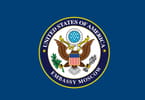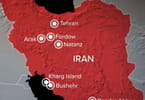Thailand and Greece are two significant tourism destinations, which have had the misfortune of experiencing their reputations as tourism destinations suffer as a result of heavily-publicized episodes of politically-motivated violence. In both countries, tourism is a significant element in their national economies, and there is strong pressure from the local tourism industry to facilitate the return of tourists. In both countries, there is a great need to rebuild confidence which has been lost in their key source markets.
However to ensure that this happens, both countries require to undertake a strategic approach, which will bolster confidence at both the business-to-business and the tourism-business-to-consumer dimension.
Thailand’s tourism industry is fortunate in having the resources of the Pacific Asia Travel Association’s (PATA) head office in Bangkok. PATA’s office, which is located in the heart of the what was the protest precinct, was briefly closed during the Red Shirt protests although its staff functioned outside the office. However, PATA has outstanding expertise in the field of post-crisis destination recovery. Their highly-effective tourism recovery work following the 2002 Bali bombing, SARS in 2003, and the Indian Ocean tsunami 2004, established PATA as one of the most effective tourism recovery organizations in the world. PATA’s offer to assist the Thai Tourism Authority (TAT) should be warmly welcomed by TAT. Their first-hand knowledge of the Thai scene is a fortuitous bonus.
TAT is understandably anxious to restore tourism to Thailand, and its web site has done an excellent job in addressing the protest issue. However, TAT made the error of launching a mass-marketing campaign too early while protests and the military response were at their height. While it is true that most of the Red Shirt-related violence was confined to central Bangkok, the global perception built by media coverage and heavily cautionary travel advisories was that the entire country was dangerous. TAT needs to engage a recovery alliance, which includes media, key tourism stakeholders from source markets, airlines which service Thailand, and the national carrier Thai Air.
Regrettably, TAT lost a lot of credibility from its over zealous mid-crisis destination marketing campaign so its will need to rely heavily on its stakeholders to be its messengers. TAT should certainly make a major effort to host travel-related media and opinion leaders among the tourism industry of its source markets to deliver a positive message to the tourism business and to consumers. However, difficult as it may be, TAT needs to wait until the dust settles from the latest episode of protests before launching such a campaign in earnest. The Thai government and tourism industry also needs to engage the diplomatic community from source market countries to convince them that travel advisories can be reviewed. This has to be conducted discreetly and diplomatically. Shrill calls for foreign governments to tone down their travel advisories, even if there are solid grounds for such calls, will simply not work because it is perceived as a demand that those governments lose face with their own citizens.
Greece is a related but different case. Certainly from my position in Australia, the Australian office of the Greek National Tourist Office appeared to adopt the ostrich strategy to its political crisis – do nothing, say nothing, stick your head in the sand, and just hope that it all goes away. In Australia, it was left to the Eastern Mediterranean Tourism association and local wholesalers who market Greece to deliver a message to the Australian travel industry about the safety of travel to Greece. Meanwhile, the GNTO made an excellent effort to emulate the approach of the Roman Emporer Nero (who fiddled while Rome burned). While the Athens head office seemed more prepared to address the reputational damage to destination Greece resulting from the political violence in Athens, there seems little in the way of a coordinated approach to restoring confidence in destination Greece. In Greece, local tourism operators were left wringing their hands in frustration at the lack of action on the part of the Greek Ministry of Tourism.
Now that Greece appears to have settled down to the task of restoring its battered economy, the timing for a tourism recovery is right now. Unlike Thailand where political instability as been ongoing for almost two years, the Greek unrest was relatively short-lived and almost entirely confined to the parliamentary district of Athens. The Greek National Tourism Office should be taking a leadership role with the recovery program in alliance with private industry stakeholders in all key source markets to reassure that Greece is fully open for business to travelers. Just as the EU has assisted Greece in its overall economic recovery, the EU Travel Association should also rally behind Greek attempts to pitch to its long-haul source markets. Tourism is an integral element to a wider economic recovery for Greece.
Effective post-crisis tourism recovery is essentially about delivering a cogent and verifiable message, building an alliance of confidence and simultaneously building trust with consumers and the travel trade. However, in order to achieve an effective recovery, timing is all important in maximizing the credibility of the massage that all is well to resume travel.
David Beirman is a senior lecture in tourism at the University of Technology-Sydney and the National Secretary of the Eastern Mediterranean Tourism Association of Australia.
WHAT TO TAKE AWAY FROM THIS ARTICLE:
- While the Athens head office seemed more prepared to address the reputational damage to destination Greece resulting from the political violence in Athens, there seems little in the way of a coordinated approach to restoring confidence in destination Greece.
- In Australia, it was left to the Eastern Mediterranean Tourism association and local wholesalers who market Greece to deliver a message to the Australian travel industry about the safety of travel to Greece.
- TAT should certainly make a major effort to host travel-related media and opinion leaders among the tourism industry of its source markets to deliver a positive message to the tourism business and to consumers.






















